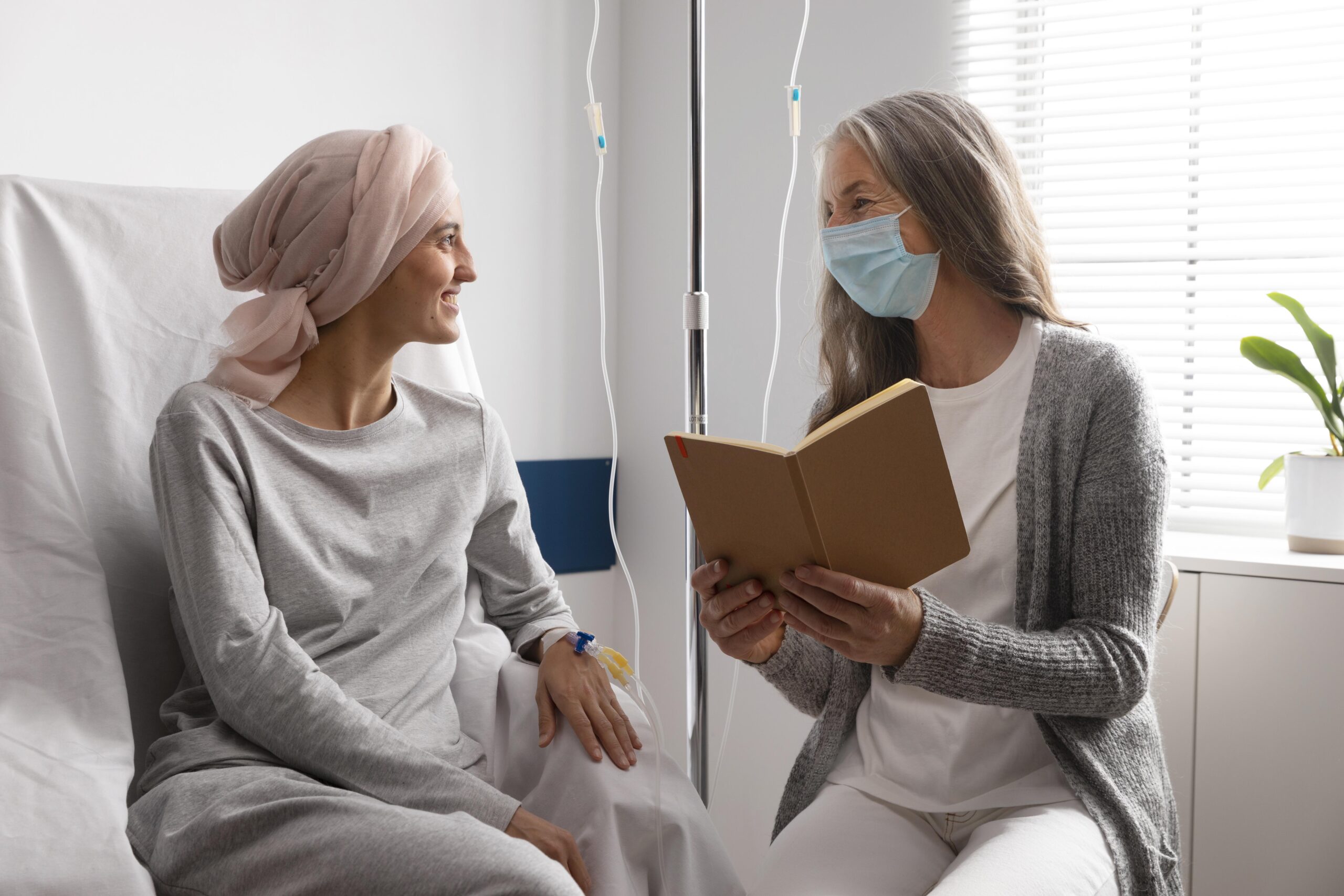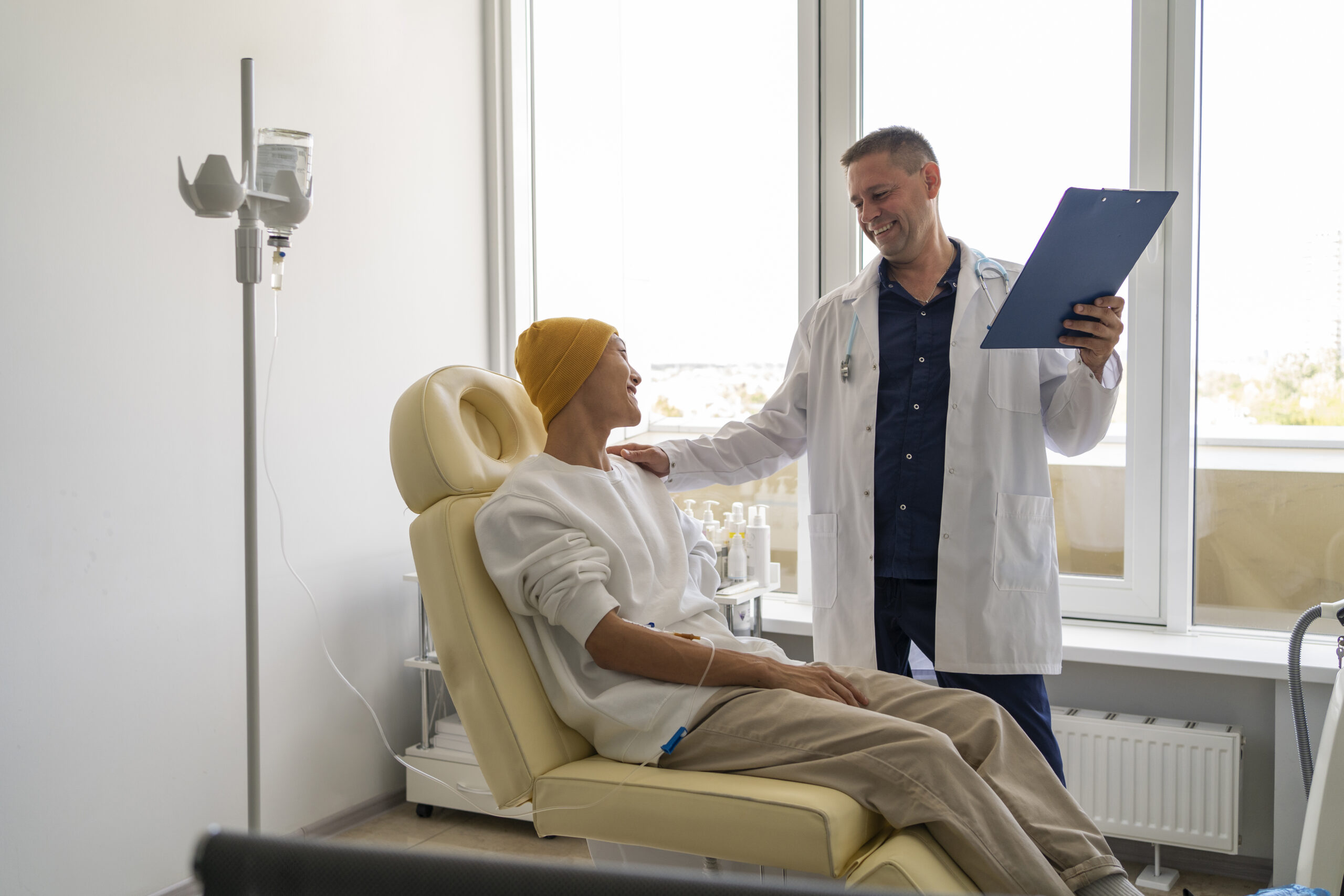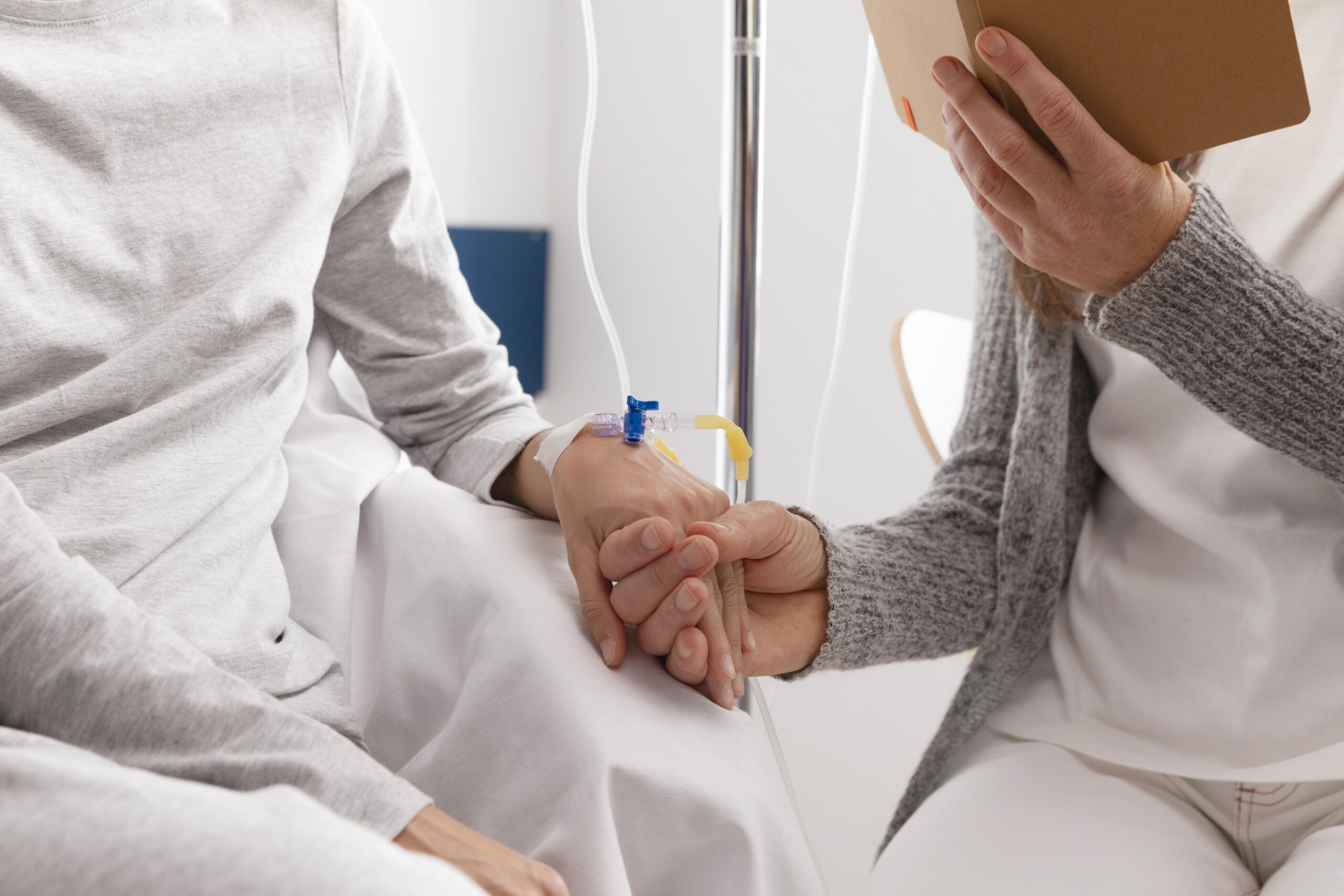Chemotherapy is one of the methods used to treat malignant tumors. It involves the systemic administration of drugs that have a toxic effect on cancer cells that divide intensively. Chemotherapy is a much more effective method in combating small cancer foci – as the tumor mass increases, a longer treatment time is needed to destroy the tumor.
In practice, chemotherapy is adapted to a specific cancer disease and affects conducting treatment according to strictly defined schemes. It usually involves the administration of 2-3 drugs in cycles, with breaks of several weeks between them. Not all tumors are sensitive to chemotherapy. Not all malignant tumors can be treated exclusively with chemotherapeutic agents.
Anticancer drugs with different effects and side effects are most often combined. As a result of such a procedure, the chemotherapy results on diseased cells are increased. Detailed recommendations regarding the number of drugs used and the frequency of subsequent chemotherapy cycles depend on the type of cancer, its advancement, the health condition, and the rate at which the effects of therapy are neutralized by healthy cells.
Chemotherapy![]() can be used alone or in combination with other cancer treatments such as radiotherapy, hormonal treatment, targeted therapy, or surgery.
can be used alone or in combination with other cancer treatments such as radiotherapy, hormonal treatment, targeted therapy, or surgery.

Chemotherapy is utilized at various stages of treatment. The hospital staff will provide details on its functioning and how to prepare for the treatment. We distinguish the following types of chemotherapy:
Depending on the expected effect and the expected concentration of anticancer drugs, specialists can administer anticancer drugs in the following ways![]() :
:
The treatment of malignant tumors typically involves multiple stages. It encompasses various standard care protocols depending on the cancer type, clinical stage, and prior therapies. A diverse range of specialists are involved in treating cancer patients, including general surgeons, oncological surgeons, and radiotherapists. Clinical oncologists select the most suitable chemotherapy for each patient. This method is often part of a combined treatment approach.
As mentioned earlier, specialists can apply it in several ways: as a neoadjuvant treatment to shrink the tumor before surgery, as an adjuvant treatment to reduce the risk of disease recurrence after surgery, or as radiotherapy for radical treatment using only chemotherapy, or in combination with radiotherapy (chemoradiotherapy) to achieve a radical cure. Additionally, chemotherapy can be used as palliative treatment for advanced malignant tumors to alleviate symptoms and, if possible, prolong the patient's life after exhausting other treatment options.
The contemporary approach to treating tumors that respond to chemotherapy involves the use of multidrug chemotherapy tailored to each patient. Typically, 2-3 drugs with varied mechanisms of action are administered simultaneously at maximum effective doses.
The chosen chemotherapeutic drugs![]() are carefully selected to avoid counteracting or weakening each other's effects. Each drug must demonstrate proven effectiveness against a specific tumor so that when used together, they complement each other in combating cancer cells. Unfortunately, all chemotherapeutic agents have distinctive side effects, so drugs that do not cause the same side effects are preferred.
are carefully selected to avoid counteracting or weakening each other's effects. Each drug must demonstrate proven effectiveness against a specific tumor so that when used together, they complement each other in combating cancer cells. Unfortunately, all chemotherapeutic agents have distinctive side effects, so drugs that do not cause the same side effects are preferred.
The fundamental principle of chemotherapy is to follow a specific treatment regimen until the drugs' toxic effects pose a risk to the patient's well-being. When a particular set of chemotherapeutic agents no longer yields the expected results, alternative therapy regimens are considered based on the patient's clinical condition.
Chemotherapy is only suitable for cancers that demonstrate documented chemosensitivity![]() . Thus, it is crucial to establish an accurate histopathological diagnosis before commencing treatment. The choice of the appropriate treatment regimen should also consider the patient's comorbidities and potential side effects.
. Thus, it is crucial to establish an accurate histopathological diagnosis before commencing treatment. The choice of the appropriate treatment regimen should also consider the patient's comorbidities and potential side effects.
Evaluating the efficiency of vital organs is necessary before beginning therapy. Throughout treatment, specific tests are conducted to assess the efficacy of chemotherapy and estimate the response to the applied chemotherapeutic.

Evaluating how well chemotherapy works is crucial for determining the effectiveness of the treatment. It is essential for planning the next steps in therapy. To determine this, various tests must be carried out before starting treatment and then repeated during chemotherapy. The response to treatment can be assessed by measuring the size of all tumor growths in imaging tests, such as computed tomography or magnetic resonance imaging. Additionally, the levels of tumor markers in the patient's blood are monitored. Based on these assessments, we categorize the response as follows:
Other measures of how well anticancer treatment is working, in addition to assessing the response to treatment, include the duration of the response and the duration of the disease before progression occurs.
Significant limitations to the effectiveness of chemotherapy are its toxicity and developing drug resistance. The first problem is that cytotoxic drugs used in chemotherapy harm cells that divide rapidly, not only cancer cells but also those in the skin, digestive tract, bone marrow, testicles and ovaries, and the urinary tract. The side effects of anticancer drugs![]() that occur during chemotherapy include:
that occur during chemotherapy include:
After several weeks from the last chemotherapy cycle, the following may develop:
After several months of treatment with chemotherapy drugs, there is a risk of developing organ toxicity in the form of:
Long-term effects of chemotherapy may include:
Another problem with chemotherapy is resistance to the medicines used. Lower sensitivity to drugs may result from, among other things, the need to use lower doses, genetic conditions, and the regeneration of cancer cells after being damaged by drugs. Barriers to anatomical structures may also negatively influence the accumulation of chemotherapeutic drugs in cancer cells.
Before visiting the doctor, it is worth helping the patient prepare a list of documents that may be helpful during the visit, a list of medications taken (names, doses), and questions for the doctor. Only doctors know how often patients ask about medicines they are taking, and it is impossible to remember everything.
Providing reliable information in this area helps avoid using medications that may interact with each other. It is especially useful when the patient uses the help of several clinics with different specialties. Collecting and organizing medical documentation allows for the proper flow of information between different doctors.
Don't be afraid to ask. Some questions will arise on their own. However, in the case of oncological treatment, a list of questions that can be asked to the oncologist at individual stages of treatment can be found on the Internet. The best examples of such “ready-made” questions are questions about treatment before, during, and after chemotherapy. It is worth writing down the answers on paper and putting them in a binder.
It is good to establish with the patient whether and what support they need. They may want someone to accompany them during selected visits. Apart from personal reasons, the stress occurring during oncological treatment, the state after medication, and problems with concentration may mean that the presence of a support person will be helpful in this situation.

Some patients approach the entire oncological treatment process relying solely on the attending physician's opinion, but not all patients have this approach. In the case of oncological treatment, we need to deal with a previously unknown topic. Additionally, anything that happens unexpectedly can burden and stress us greatly. Example: an unusual symptom occurring during treatment or a drop in the level of some blood parameters.
Because the importance of the problem is high and our practical knowledge is negligible – doubts should most often be dealt with by contacting a doctor. In selected cases, it is also worth having a second opinion. It often happened that the opinions were mutually exclusive – do not be afraid of such situations. You will get out of it by digging into the subject or using a third opinion.
The Internet is a source of valuable knowledge, but also false information about cancer treatment, the harmfulness of some products, etc. Doctors strongly question many unconventional methods of treatment. You have to consider who to trust. The reception and approach to such situations are very individual. Some issues are perceived differently when you know you have little or almost no time left.
Oncology doctors focus strongly on treating the main problem, which is cancer. This approach sometimes causes other topics to fade into the background. Therefore, for example, if someone has other co-existing health problems, e.g., with the stomach mucosa, it is worth asking whether a medicine to lower the stomach's acid level will help them during chemotherapy.
It is worth establishing regular contact with a family doctor who will look at the patient holistically, suggest something, rationalize, and explain. Such support will also be valuable after the oncological treatment is completed, when it is necessary to return to normal life, including periodic tests, etc.
According to the current state of knowledge, no specific diet is recommended during cancer treatment, including chemotherapy. It is assumed that the method of nutrition depends on individual needs, the stage of the disease, and the patient's tolerance and tastes. Recommendations focused on only one aspect will not always be applicable in every situation. Hence, it is challenging to plan a diet that will be justified throughout the entire period of therapy.
One of the most essential dietary points during oncological treatment is the prevention of malnutrition![]() , hence a significant part of the rules will focus on mitigating the previously mentioned side effects.
, hence a significant part of the rules will focus on mitigating the previously mentioned side effects.